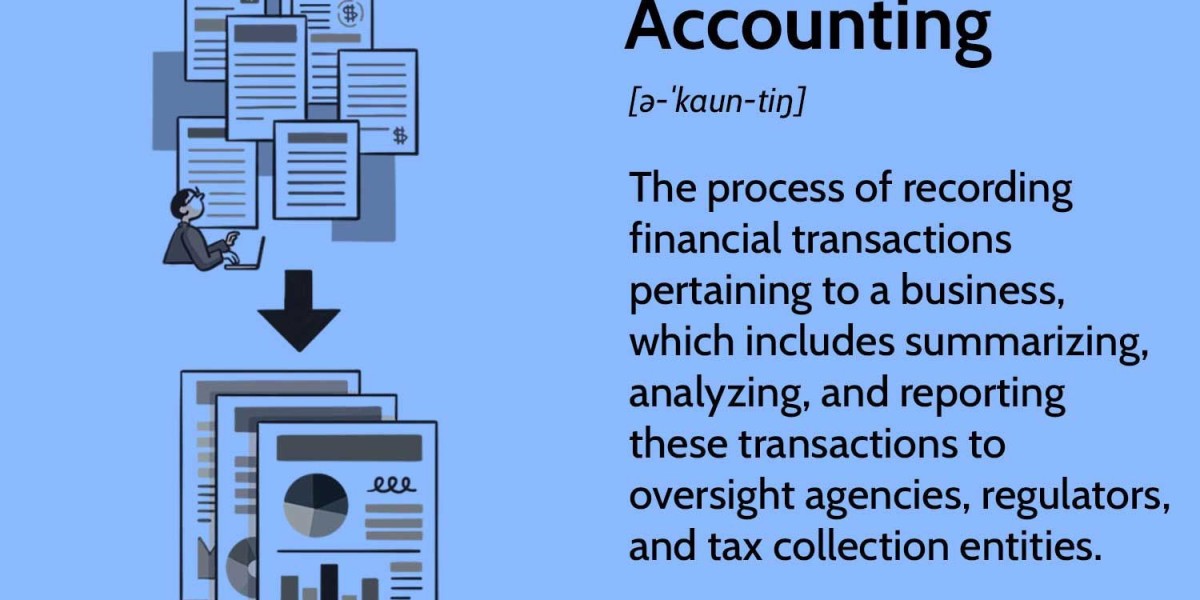- Introduction to Accounting Courses
What is an Accounting Course?
An accounting course is designed to equip individuals with the knowledge and skills required to manage financial information. These courses cover various aspects of accounting, including the preparation, analysis, and reporting of financial data. Whether it's for beginners or professionals looking to enhance their expertise, accounting courses are crucial for anyone interested in the financial world.
Importance of Accounting Education
Accounting education is not just about learning numbers. It enables individuals to understand how financial systems operate, how businesses track and report their performance, and how financial decisions impact organizations. In today's fast-paced economy, businesses of all sizes depend on professionals with strong accounting skills. Without a solid understanding of accounting, it would be challenging to make informed financial decisions.
- Types of Accounting Courses
Accounting education is versatile, offering a range of courses to cater to different needs. The primary distinction lies between short-term courses and full-degree programs.
Short-Term Accounting Courses
Short-term courses focus on specific areas of accounting. These courses are ideal for individuals who want to enhance their skills quickly, such as learning about bookkeeping, taxation, or auditing. Many professional organizations offer these courses to enhance the practical knowledge of employees.
- Bookkeeping and Accounting Fundamentals
- Tax Preparation and Planning
- Financial Analysis for Managers
Degree Programs in Accounting
For those pursuing a long-term career in accounting, degree programs offer comprehensive education. These programs often culminate in a Bachelor's or Master's degree in Accounting, with opportunities to specialize in various fields.
- Bachelor of Science in Accounting
- Master of Accounting (MAcc)
- Master of Business Administration (MBA) with an Accounting Focus
- Benefits of Taking an Accounting Course
Accounting courses are valuable for personal and professional growth. Here are some key benefits:
Career Opportunities
Accountants are in high demand across industries. Completing an accounting course opens the door to a variety of career paths, including roles in public accounting, corporate finance, and government agencies. Some of the most common career options include:
- Certified Public Accountant (CPA)
- Financial Analyst
- Tax Consultant
- Internal Auditor
Skill Development
Accounting courses sharpen both hard and soft skills. Students not only learn technical accounting skills but also develop problem-solving abilities, critical thinking, and communication skills. These competencies are valuable in almost any profession.
Financial Literacy
Understanding accounting principles can enhance one's personal financial management. Learning how to manage budgets, track expenses, and understand financial statements can improve financial decision-making in daily life.
- Core Topics Covered in Accounting Courses
Accounting courses provide an in-depth understanding of various subfields within accounting. Here are the core topics typically included:
Financial Accounting
Financial accounting focuses on the preparation of financial statements, such as balance sheets and income statements. It deals with external reporting and ensures that an organization’s financial performance is accurately communicated to stakeholders.
Managerial Accounting
Managerial accounting, unlike financial accounting, is aimed at internal decision-making. It involves analyzing costs, budgeting, and financial forecasting, helping managers plan and control business activities.
Tax Accounting
Tax accounting involves understanding and applying tax laws to ensure compliance and minimize tax liabilities. This area is essential for individuals and businesses to ensure they meet their tax obligations.
Auditing and Assurance
Auditing courses teach how to assess the accuracy and validity of financial statements. Auditors provide an independent evaluation of financial records, ensuring that companies comply with regulations and generally accepted accounting principles (GAAP).
- Choosing the Right Accounting Course
Selecting the right accounting course depends on your goals, career path, and educational background. There are several factors to consider:
Online vs. Traditional Courses
With the rise of online education, accounting courses are now available in both traditional classroom settings and online platforms. Online courses provide flexibility, but traditional courses often offer face-to-face interaction and networking opportunities.
- Online Courses: Convenient, self-paced, and often more affordable.
- Traditional Courses: Structured, with more direct interaction and mentorship.
Certification vs. Degree Programs
While certifications like the CPA and CMA are widely recognized in the accounting profession, degree programs offer a broader and deeper understanding of accounting. Degree programs may also open up opportunities for higher-paying roles and promotions.
- Skills Gained from an Accounting Course
An accounting course equips students with a wide range of skills that are essential for success in the field:
Analytical Skills
Accounting requires the ability to analyze financial data, spot discrepancies, and draw meaningful conclusions. Students learn how to assess financial statements and make sound judgments based on numerical data.
Technical Skills
Accountants must be proficient in using accounting software and tools, such as QuickBooks, Excel, and ERP systems. Accounting courses often focus on hands-on experience with these tools.
Communication and Problem-Solving Skills
In addition to technical skills, accountants must be able to communicate complex financial information in a simple, understandable manner. Moreover, problem-solving skills are crucial when addressing discrepancies or optimizing financial performance.
- The Role of Technology in Accounting Education
The accounting profession has embraced technology, and accounting education is no exception. Today’s accounting courses integrate various technological tools and platforms.
Accounting Software and Tools
Most modern accounting courses include training on the latest accounting software and tools. These platforms help students learn how to manage finances, prepare reports, and analyze data with greater efficiency.
- QuickBooks: A widely used tool for managing finances in small to medium-sized businesses.
- Microsoft Excel: Essential for performing complex financial analysis and creating reports.
Online Learning Platforms
Online courses are increasingly popular due to their flexibility. Platforms like Coursera, Udemy, and LinkedIn Learning offer courses on various accounting topics, enabling students to learn at their own pace.
- Accounting Certifications and Specializations
Accounting certifications are a valuable way to demonstrate expertise and credibility. Some of the most recognized certifications include:
Certified Public Accountant (CPA)
The CPA designation is one of the most prestigious credentials in the accounting field. Earning a CPA requires passing an exam and meeting experience requirements. CPAs can work in various roles, including auditing, tax preparation, and financial consulting.
Chartered Accountant (CA)
Similar to the CPA, the CA designation is recognized internationally. Chartered accountants are highly regarded for their expertise in auditing and financial reporting. The CA certification requires passing rigorous exams and gaining experience in the field.
Certified Management Accountant (CMA)
The CMA certification focuses on management accounting, emphasizing financial planning, analysis, and decision-making. CMAs are skilled in cost management, budgeting, and performance evaluation.
- Challenges in Accounting Education
Despite the numerous benefits, pursuing an accounting course comes with its challenges:
Complex Concepts
Accounting involves intricate concepts such as accrual accounting, depreciation, and deferred tax. These can be overwhelming for beginners and require a strong grasp of foundational principles.
Time Management
Accounting courses, especially degree programs, require a significant time investment. Students must balance coursework, assignments, and exams, which can be stressful without proper time management strategies.
- Conclusion
In conclusion, accounting courses are vital for anyone pursuing a career in the financial industry. They offer the opportunity to gain critical skills, enhance job prospects, and understand the financial world. Whether opting for short-term courses or degree programs, the knowledge gained can lead to numerous career opportunities in accounting. Accounting courses not only improve technical abilities but also promote financial literacy and analytical thinking, which are beneficial in both professional and personal contexts.
Ultimately, the right accounting course depends on individual goals and circumstances. However, regardless of the path chosen, accounting education provides a solid foundation for a successful career in finance.
IPA offers:-
Diploma in Taxation, Courses after 12th Commerce , courses after bcom
Diploma in Financial Accounting , SAP fico Course , Accounting and Taxation Course , GST Course , Basic Computer Course , Payroll Course, Tally Course , Advanced Excel Course , One year course , Computer adca course Income Tax Course
Naijamatta is a social networking site,
download Naijamatta from Google play store or visit www.naijamatta.com to register. You can post, comment, do voice and video call, join and open group, go live etc. Join Naijamatta family, the Green app.
Click To Download


